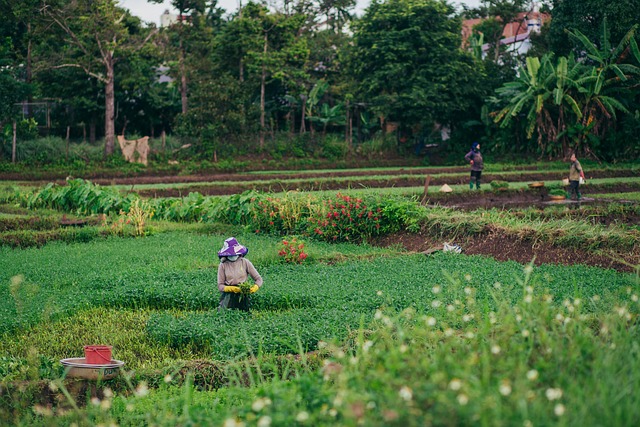China’s farmers starting an agricultural revolution, livestreamed
More and more farmers, supported by comprehensive training and government incentives, are selling their products online, bypassing middlemen. E-commerce brings economic benefits, reduces waste, and offers new opportunities to young people. This is in line with the revitalisation of rural areas announced by Xi Jinping, helping to narrow the gap between rural and urban areas.
Milan (AsiaNews) – In China, farmers are leading a new agricultural revolution, aimed at bypassing the long chain of intermediaries that separates producers from consumers.
The digital revolution has been underway in other sectors for some time, but faces greater obstacles in rural areas where many farmers are not digitally savvy and unfamiliar with the potential of new technologies.
To help them, new schools are being established with intensive four-day courses, for 5,000 yuan (about US$ 700), with students learning how to integrate sales pitch with the art of live-streaming.
“Just look at this juice,” Mr Chen told his viewers during a live social media sale. “Take it home, taste it, and make fresh pear juice for your children”.
People everywhere are buying everything online, especially in China, so that traditional sales methods now seem obsolete.
For a long time, agriculture remained on the sidelines of this digital sales revolution. In 2019, however, Chinese farmers began to recognise the new potential and are upgrading their sales skills.
"We must become farmers of the new era," said Gao Chaorong quoted by AFP. And many are doing just that, like Zhong Haihui, who appears live in waterproof boots and a cowboy hat, greeting his followers and presenting the day's harvest.
To help farmers with this change, some specialists have been offering hands-on courses where they can teach how to deliver the harvest directly to consumers via smartphones – preventing it “from rotting in the fields” before it is sold, explains one student.
For its part, the government is trying to facilitate the process by investing in infrastructure and improving Internet connectivity in rural areas.
Support is also being provided through initiatives encouraging the development of rural e-commerce with financial incentives or subsidies for farmers who opt for digital sales channels.
Local authorities are even sending officials to teach live streaming and help farmers connect to the Internet.
The numbers seem to confirm that this is a growing trend. Last year alone, rural creators on Douyn (the Chinese version of TikTok) grew by 52 per cent, while on Xiaohongshu (a Chinese app halfway between Instagram and Amazon), the hashtag "new farmers" has surpassed 225 million views.
Farmers traditionally have to contend with a lengthy, inefficient, and disadvantageous distribution system. After harvesting, the produce must pass through a chain of intermediaries: local traders, wholesalers, and final distributors. Along the way, costs rise, product quality declines, and the farmer's profit margin shrinks.
This year's exceptional lychee harvest, more than double last year's, has highlighted the fragilities of this system. Farmers have struggled to generate profits due to the combined effects of oversupply, high logistics costs, and the fragility of the fruit, which risked deterioration along the supply chain. Some have even chosen not to harvest them lest costs outweigh profits.
Beyond the economic aspects, rural creators could have far-reaching consequences.
First and foremost, the direct contact with consumers with the opportunity of showing the fields and farming methods. This can restore trust in the sector, providing an initial solution to food safety concerns.
Furthermore, this has drawn the attention of younger people, who, seeing the farmers' dedication firsthand, may reevaluate the viability of a profession particularly threatened by the difficulty of engaging a younger generation.
Finally, the redistribution of profits helps reduce the income gap between urban and rural areas and might draw investments in the sector by farmers themselves.
These trends are fully in line with the priorities and objectives of President Xi Jinping, who since taking office in 2012 has identified rural revitalisation as a key priority for China's development.
22/03/2022 12:15







.png)










